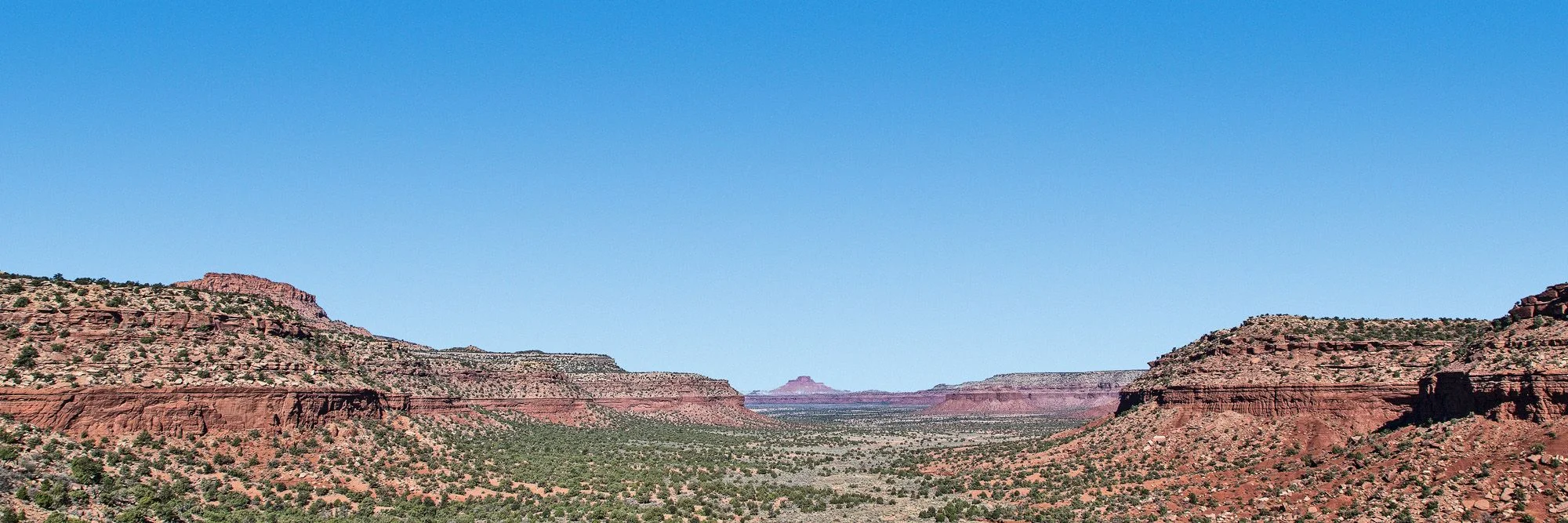Bears Ears in the News: Big Numbers and a Ticking Clock
Above is a panorama taken from near the southeast boundary of Shash Jáa.
Big Numbers:
The numbers are in, and, to no one's great surprise, visits to Bureau of Land Management-administered public lands in the Bears Ears region have increased dramatically since the designation and subsequent reduction of Bears Ears National Monument.
The San Juan Record reports a 35 percent increase in visitation from 2016 to 2017 on lands managed by the BLM's Monticello field office in San Juan County, Utah. The agency logged more than 400,000 visits last year to areas contained within the boundaries of the original 1.35-million-acre Bears Ears National Monument, established by former President Barack Obama in December 2016, and the much-reduced 200,000-acre pair of monuments created by President Donald J. Trump a year later.
Consistent with previous years, the most popular sites were in the Indian Creek area and on Cedar Mesa. The former is in the Indian Creek unit of the new Bears Ears National Monument; the latter was in the original Bears Ears monument but lost its protection when Trump changed the boundaries.
These new findings come amid continued concerns raised by conservationists, archaeologists, and Native American tribes that increased visitation without sufficient funding for monitoring and educating visitors endangers a fragile desert landscape and the historical structures it contains. Such concerns prompted Bluff, Utah-based Friends of Cedar Mesa to launch a campaign to open an education center where visitors can learn about the cultural and natural history of the Bears Ears region and how to "visit with respect."
Panorama from Fry Canyon, not included in Trump's reduced monuments.
Ticking Clock:
Today (April 11) is the final day for the public to submit comments on the BLM's management plans for Trump's much-reduced Bears Ears National Monument. Groups such as Utah Diné Bikéyah(UDB), a Native-led nonprofit whose advocacy for the protection of Bears Ears led to the creation of the original monument proposal by Native American tribes, has urged its supporters to participate.
"This call for action does not mean that Utah Diné Bikéyah supports Trump’s designated boundaries of the Indian Creek and Shash Jáa National Monuments, an 85% reduction from the original designation," UDB stated on its website. "But this resource management plan will establish the management priorities, zoning, travel planning, and recreation policies for these new national monuments, as well as monitoring and restoration efforts. If the original monument is not restored, Utah Diné Bikéyah wants to ensure that the remaining designated land of Trump’s two monuments is properly managed and protected."
We will be following this story closely and will keep you apprised of further developments.
Thanks for reading!
